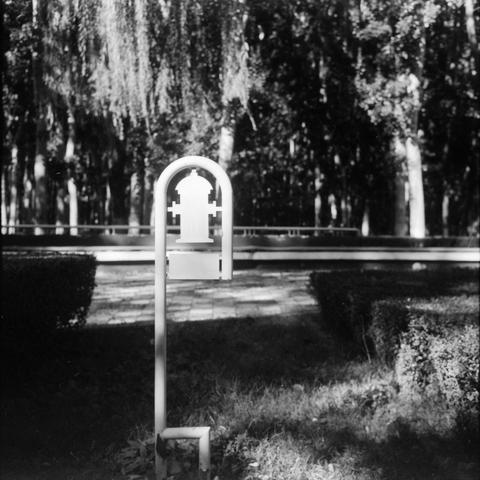2025-11-24 14:45:38
As SBOMs slowly progress at the federal level and in enterprises, the rise of AI coding assistants is fueling optimistic—and, some experts argue, “kind of insane”—claims about a future with vulnerability-free software.
Check out my latest CyberScoop piece.
Many thanks to @…, @…
2025-11-17 09:26:08
And you don't need to accept the trap of authoritarian masculinity on logic alone, the proof is right there in male influencers like Andrew Tate and their followers. These dipshits get so obsessed with gatekeeping they don't realize that the gates they're tending keep them in, that the more walls they put up to protect their privilege, the smaller their identity can be. They huddle in tiny pens, terrified of crossing imaginary bounds that they imposed *on themselves.*
They have built their own torture chambers and locked themselves inside, and for what? They turn themselves into dragons, hoarding what they see as valuable while repressing every emotion including joy. And if they let themselves experience joy, they would, perhaps, realize that all these privileges are inconsistent with it. They might, perhaps, recognize that they have built up these privileges so they don't have to admit that their suffering and fear are not, in fact, admirable. They might have to face the fact that they have lived lives that are deeply pathetic, might have to face the fact that only empathy can give one access to deep satisfaction, might have to face the fact that they have lived their whole lives on a treadmill, going nowhere.
But I assume that they won't ever do that, because to do so would force them to face the enormity of the emotional debt, the pain and suffering they have inflicted on the world, and those are big feelings. It's far easier to hide in a hole, forever alone, making up silly rules to keep everyone inside scared and keep everyone outside from seeing in.
2025-11-25 09:19:33
Graphene and thin graphite films for ultrafast optical Kerr gating at 1 GHz repetition rate under focused illumination
Amr Farrag, Assegid M. Flatae, Mario Agio
https://arxiv.org/abs/2511.17713 https://arxiv.org/pdf/2511.17713 https://arxiv.org/html/2511.17713
arXiv:2511.17713v1 Announce Type: new
Abstract: The ability to address sub-picosecond events of weak optical signals is essential for progress in quantum science, nonlinear optics, and ultrafast spectroscopy. While up-conversion and optical Kerr gating (OKG) offer femtosecond resolution, they are generally limited to ensemble measurements, making ultrafast detection in nano-optics challenging. OKG, with its broadband response and high throughput without phase-matching, is especially promising when used at high repetition rates under focused illumination.
Here, we demonstrate an ultrafast detection scheme using the third-order nonlinearity of graphene and thin graphite films, operating at 1 GHz with sub-nanojoule pulses and achieving 141 fs temporal resolution. Their exceptionally large nonlinear refractive index, orders of magnitude higher than conventional Kerr media, enhances detection efficiency at smaller thicknesses, enables sub-picosecond response, and supports broadband operation. Their atomic-scale thickness minimizes dispersion and simplifies integration with microscopy platforms, optical fibers, and nanophotonic circuits, making them a compact, practical material platform for nano-optical and on-chip ultrafast Kerr gating.
toXiv_bot_toot
2026-01-21 04:47:41
RED (Ocassionally) 🔴
红 (有时) 🔴
📷 Zeiss IKON Super Ikonta 533/16
🎞️ Harman Red 125 (6x6)
#filmphotography #Photography #blackandwhite
2025-12-14 21:53:08
“How did it feel for the man who built a home, only to watch it turn to the rubble? How does a farmer stand before the land he tended year after year, now lying barren—no scent of soil, no whisper of harvest? How does a father tell his son the school he loved is gone, that the garden where he played is now only a rumor in the rubble? How does a mother walk through the ghost of a playground, finding a small shoe, a torn notebook, a toy she once mended? How do neighbors look at one another, wo…
2025-11-16 12:05:17
I have the distinct impression that we could use most American "sci-fi" TV series (which seem to have a kink for post-apocalyptical scenographies) as a diagnostic tool for the autism spectrum.
For a moment, let's leave aside the tons of right-wing propaganda "hidden" in plain sight, and their excessive reliance on boring & worn out tropes (religious & cultish bullshit, irrational lack of communication & excess of anti-social behaviour, all vs all, ultra-low-iq characters*, psychotic & irrationally treacherous characters*, ultra-inconsistent character development used to justify "unexpected" plot twists, rampant anti-intellectualism...).
What could be used as a diagnosis tool is the incredible amount of strong inconsistencies that we can find in them**. It throws me out of the story every single time; and I suspect that it takes a certain kind of "uncommon personality" to feel that way about it, because otherwise these series wouldn't be so popular without real widespread criticism beyond cliches like "too slow", "it loses steam towards the end of the season", etc.
Many of those plots start in a gold mine of potentially powerful ideas... yet they consistently provide us with dirt & clay instead, while side-lining the "good stuff" as if it was too complicated for the populace.
Do you feel strongly about it? Do you feel like you can't verbalize it without being criticised as "too negative", or "too picky", or an "unbearable snob"? Do you wonder why it seems like nobody around shares your discomfort with these stories?
* : I feel this is a bit like the chicken & egg problem. Has the media conditioned part of American society to behave like dumb psychopaths as if it was something "natural", or is the media reflecting what was already there? Also, could we use other societies as models for these stories... just for a change? Please?
** : Just a tiny example: a "brilliant" engineer who builds a bridge out of fence parts and who doesn't bother to perform the most basic tests before trying it in a real setting and suffer the consequences: the bridge failing and her falling into the void. Bonus points for anyone who knows what I'm talking about.
2026-01-20 16:30:09
It’s possible that this is nothing at all, and they’ll be back in full force today. Nobody, and I mean nobody, has suggested that maybe the worst is over.
But we took the days of relative rest anyway. Hmm, “rest” is wrong: mutual aid, food distribution, school observers, people doing laundry for those who can’t go to a laundromat — that continues unabated. But there’s a definite feeling of catching our breath for a moment.
3/
2025-11-17 19:28:17
I should probably take a break as the holidays approach. As they say "All work and no play make jack a dull boy"
Okay Hallmark channel - I'm listening.
#ShamelesslyStolenFromSomewhereElseOnTheInternetHonestlyICantKeepTrackOfThisStuffAnymore
2026-01-21 20:01:08
GeoStruXer and Bentley used AI with satellite data to cut materials and embodied carbon in a Saudi grain warehouse retrofit—no performance lost.
Regeneration International launched training and standards to help farmers adopt regenerative practices at scale.
Sign up for the For People And Planet climate solutions digest:
2026-01-17 00:30:00
Gloom & Bloom IV ☁️🌺
黑暗绽放 IV ☁️ 🌺
📷 Zeiss IKON Super Ikonta 533/16
🎞️ Lucky SHD 400
#filmphotography #Photography #blackandwhite











